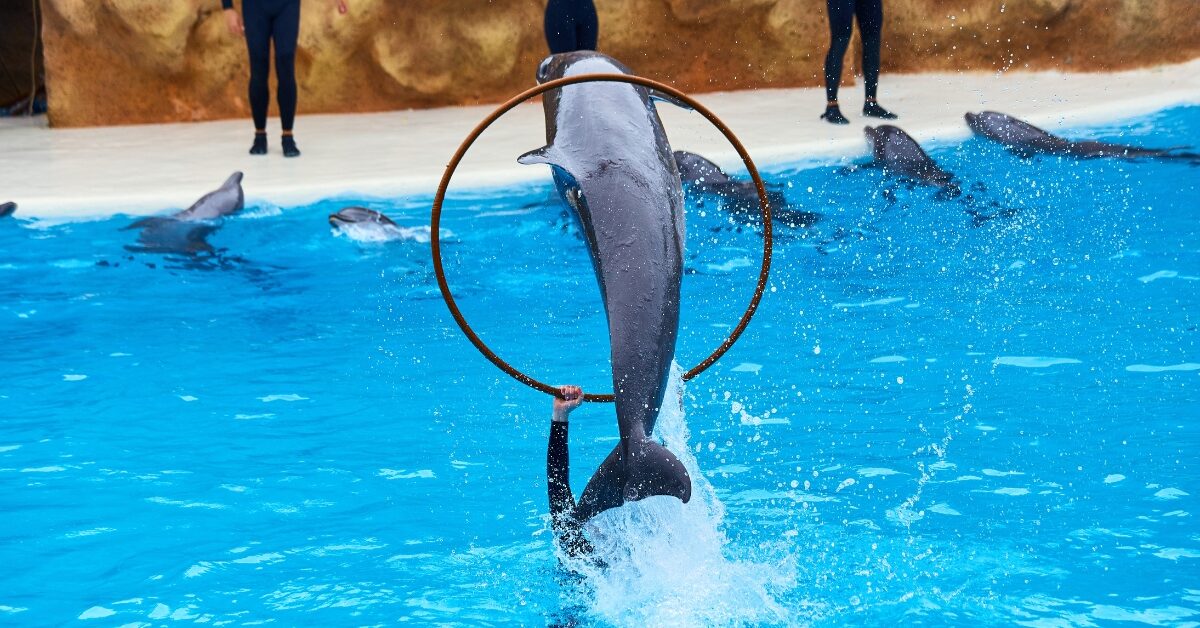How To Become A Dolphin Trainer?
Are you a lover of marine animals with a special affinity for dolphins? Do you dream of working with these intelligent creatures on a daily basis? Then perhaps becoming a dolphin trainer is the perfect career for you. Dolphin trainers are people who educate, train, and care for dolphins in aquariums, marine parks, and research centers. In this article, we’ll cover the steps you need to take to become a dolphin trainer, the skills required, what the role entails, and the benefits of working as a dolphin trainer.
Steps To Becoming A Dolphin Trainer
Becoming a dolphin trainer requires dedication and commitment. While there is no set path to follow in becoming a dolphin trainer, there are a few steps that can guide you:
- Research
Before embarking on the path to becoming a dolphin trainer, it’s essential to research everything about the profession. Learn more about marine animals, their habits, and their natural habitats. Read up on aquatic life and the role of aquariums and marine parks in conserving and managing marine animals. You can check out The International Marine Animal Trainers Association (IMATA Recommended Reading List).
Research is crucial in any career path, but it is especially important when it comes to working with marine animals. Marine animals are unique in their behavior and physiology, and it is essential to understand their specific needs and requirements before working with them. - Gain experience
You can start gaining experience in working with dolphins by taking internships or volunteering at a marine park or aquarium. Look for opportunities that provide hands-on experience in dolphin training, interaction, and care. Explore internship opportunities offered by organizations like the Dolphin Research Center (DRC), which provides hands-on learning experiences for individuals passionate about marine animal care and training.
Volunteering is an excellent way to gain experience in the field, and it can also help you build connections with professionals in the industry. Many marine parks and aquariums offer volunteer programs that allow you to work with dolphins and other marine animals. Check out the volunteer programs provided by Clearwater Marine Aquarium and The Marine Mammal Center, which emphasize animal care and education, making them an excellent starting point for aspiring dolphin trainers. - Education
Dolphin trainers often hold a degree in marine biology, zoology, animal behavior, or a related field. Pursuing a degree in one of these areas can increase your chances of getting a job as a dolphin trainer.
Education is essential in any career path, and it is no different in the field of marine animal training. A degree in a related field can provide you with a solid foundation in marine biology, animal behavior, and other relevant areas of study. - Get certified
Becoming a certified dolphin trainer will open up better opportunities for you. The International Marine Animal Trainers Association (IMATA) offers certification programs for aspiring dolphin trainers. To obtain certification, you’ll need to complete courses, acquire a minimum number of hours working with dolphins, and pass a written exam.
Certification is a valuable asset in any career path, and it is especially important in the field of marine animal training. Certification demonstrates your knowledge and skills in the field and can help you stand out to potential employers.
Becoming a dolphin trainer requires dedication, commitment, and a love for marine animals. By following these steps and gaining experience in the field, you can achieve your dream of working with these incredible creatures.
Skills Needed For Becoming A Dolphin Trainer
Working as a dolphin trainer is a dream job for many people who love marine animals and want to work with them. However, it takes a lot of hard work, dedication, and specific skills to become a successful dolphin trainer. Here are some additional skills you may need to excel in this profession:
Knowledge of Marine Biology: A deep understanding of marine biology is essential to becoming a dolphin trainer. You should have a comprehensive knowledge of the biology, behavior, and physiology of dolphins to ensure their well-being and safety.
Adaptability: Dolphin trainers should be flexible and adaptable to changes in work schedules, weather conditions, and the behavior of dolphins. You may have to work long hours, including early mornings, late evenings, and weekends.
Problem-Solving Skills: Dolphin trainers must be quick thinkers and have excellent problem-solving skills. You may face unexpected situations, such as a sick dolphin, a malfunctioning equipment, or a sudden change in weather, and you should be able to handle the situation calmly and efficiently.
Passion for Conservation: Dolphin trainers should have a deep passion for conservation and the environment. You should be committed to preserving the natural habitats of dolphins and other marine animals and educating the public about the importance of conservation.
Ability to Swim: Dolphin trainers should be excellent swimmers and comfortable working in the water. You may have to swim with the dolphins, monitor their behavior, and clean their habitats.
Creativity: Dolphin trainers should be creative and innovative in designing training programs and activities for the dolphins. You should be able to come up with new and exciting ways to engage the dolphins and keep them motivated.
Overall, becoming a dolphin trainer is a rewarding and exciting career, but it requires a lot of hard work, dedication, and specific skills. If you have a passion for marine animals and are willing to put in the effort, you may find yourself living your dream as a successful dolphin trainer.
What is A Dolphin Trainer?
Dolphin trainers are professionals who have a deep passion for marine life and love working with dolphins. These trainers are responsible for ensuring the well-being of the dolphins under their care, which includes designing training programs, providing medical care, and preparing fish-based diets.
Training programs are designed to ensure the dolphins are healthy and happy, and the trainers work closely with the dolphins to teach them new behaviors and tricks. These behaviors and tricks are not only for entertainment purposes but also serve as a form of exercise and stimulation for the dolphins.
Aside from training, dolphin trainers also take care of the tanks where the dolphins live. This includes maintaining the water quality, temperature, and cleanliness of the tanks. Trainers also ensure that the dolphins have toys and other forms of enrichment to keep them mentally stimulated and engaged.
Providing medical care is also an important aspect of a dolphin trainer’s job. Trainers monitor the dolphins for any signs of illness or injury and work with veterinarians to provide the necessary treatment. They also keep detailed records of the dolphins’ health and behavior to ensure they are receiving the best possible care.
In addition to their daily care responsibilities, dolphin trainers also provide entertainment shows for guests. These shows are not only fun for guests but also serve as a way to educate the public about the importance of marine conservation and the impact humans have on the ocean’s ecosystem.
Overall, being a dolphin trainer is a highly rewarding career that requires a lot of hard work, dedication, and love for marine life. These professionals play a crucial role in ensuring the well-being of the dolphins under their care and educating the public about the importance of marine conservation.
The Benefits of Working as A Dolphin Trainer
Working as a dolphin trainer is a dream job for many animal lovers. The opportunity to work with these intelligent and friendly creatures is both rewarding and challenging. Dolphin trainers have the unique privilege of interacting with dolphins on a daily basis, getting to know their personalities, and learning about their behavior in the wild.
Aside from the joy of working with dolphins, there are many other benefits to this career path. Let’s explore some of them:
- Opportunities for travel: Dolphin trainers may travel to different parts of the world to work at different marine centers. This not only allows them to experience different cultures and environments but also exposes them to different species of marine animals. Imagine working with sea turtles in the Caribbean or penguins in Antarctica!
- The chance to work with other marine animals: Dolphin trainers may also have the opportunity to work with other aquatic animals in marine centers, such as sea lions, whales, and sharks. This provides a chance to learn about different species and expand their knowledge and skills.
- Challenging and fulfilling work: Working with dolphins presents a new challenge each day, and trainers find it fulfilling to see the dolphins progress and learn. Trainers must constantly adapt to the needs of their dolphins and create new and exciting training programs to keep them engaged and stimulated.
- Rewarding experiences: Nothing compares to the feeling of being close to animals and helping them to thrive under their care. Dolphin trainers have the satisfaction of knowing that they are making a difference in the lives of these amazing creatures.
- Career growth: According to ZipRecruiter, the average salary in the United States is around $54,463/year as of December 2024. Dolphin trainers may grow into managerial and research positions, which guarantee high pay. Those with experience and expertise can also become consultants, educators, or even start their own businesses.
As with any career, becoming a dolphin trainer requires dedication and hard work. It is important to gain hands-on experience, pursue education, get certified, and hone the necessary skills. But for those who are passionate about marine animals and willing to put in the effort, a fulfilling career as a dolphin trainer awaits.




